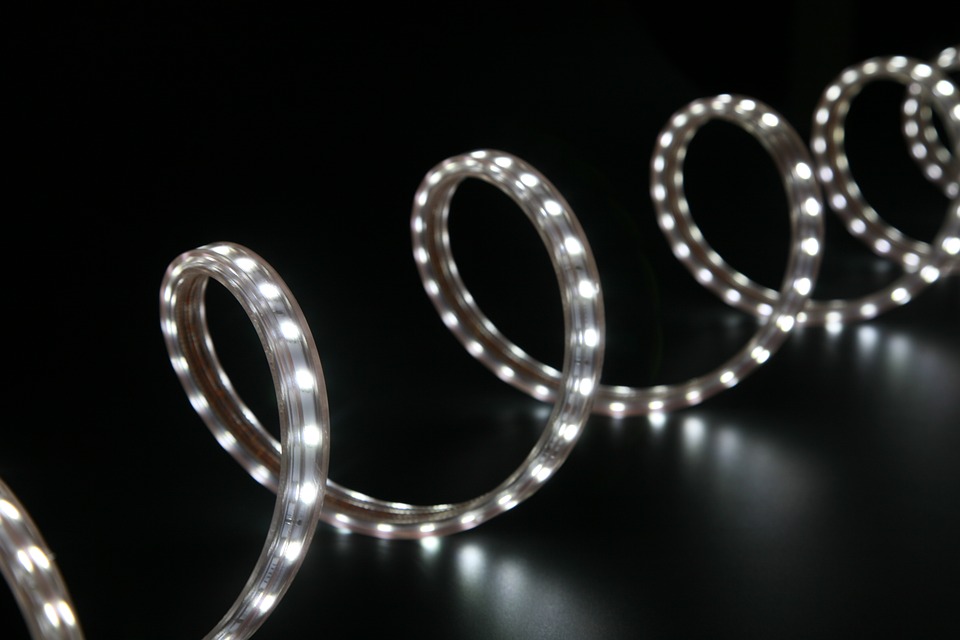Sustainable LED Strip Lights: Eco-Friendly Manufacturers to Consider
Sustainable LED Strip Lights: Eco-Friendly Manufacturers to Consider
Blog Article
The Rise of Green Lighting Solutions
As environmental consciousness grows, the lighting industry has responded with sustainable alternatives. Forward-thinking led strip lights manufacturer companies are now prioritizing eco-friendly production methods, energy efficiency, and recyclable materials. This guide explores the most sustainable LED strip light manufacturers and what makes their products genuinely green.
What Makes LED Strip Lights Sustainable?
Before evaluating manufacturers, it's important to understand key sustainability factors:
Energy Efficiency: Lumens per watt performance
Material Selection: Use of recycled/recyclable components
Production Processes: Low-emission manufacturing
Product Lifespan: Extended durability reduces waste
Packaging: Biodegradable or minimal packaging solutions

Top 5 Sustainable LED Strip Light Manufacturers
1. Philips (Signify) - Circular Lighting Leader
Sustainability Highlights:
Carbon-neutral production facilities
100% renewable electricity usage
GreenSwitch program for product recycling
Product Specialization:
Energy-efficient smart strips
Recyclable aluminum channel systems
2. LEDVANCE (Formerly Osram) - Eco Innovation
Sustainability Highlights:
90% recyclable product designs
Mercury-free manufacturing
ISO 14001 certified facilities
Product Specialization:
Long-life outdoor strips (100,000+ hours)
Reduced blue light options
3. Cree Lighting - Sustainable Engineering
Sustainability Highlights:
75% less energy than conventional strips
Lead-free solder processes
DLC premium certified products
Product Specialization:
High-efficiency commercial strips
Dimmable eco-solutions
4. GE Current - Responsible Manufacturing
Sustainability Highlights:
Zero-landfill production
Sustainable material sourcing
ENERGY STAR® certified products
Product Specialization:
Low-voltage DC strips
Solar-compatible designs
5. SAMSUNG LED - Green Technology
Sustainability Highlights:
30% reduced carbon footprint
Eco-packaging initiatives
LM-80 tested longevity
Product Specialization:
High-CRI natural light strips
Modular repairable systems
Certifications to Look For
When evaluating a led strip lights manufacturer's sustainability claims, verify these certifications:
EPEAT (Electronic Product Environmental Assessment Tool)
ENERGY STAR for energy efficiency
RoHS compliance for hazardous substance restriction
TCO Certified for sustainable IT products
Cradle to Cradle for circular design
Sustainable Features to Prioritize
Modular Designs: Allow component replacement instead of full disposal
Recyclable Materials: Aluminum housings, separable components
Low-Power Controllers: Reduce standby energy consumption
Long Warranty Periods: Indicate confidence in product longevity
Take-Back Programs: Manufacturer recycling initiatives
The Future of Sustainable LED Strips
Innovative led strip lights manufacturer companies are developing:
Bio-based materials for diffusers and housings
Self-powering strips with integrated solar cells
Chemical-free adhesives for easier recycling
Blockchain tracking for material provenance
How to Verify Sustainability Claims
Request detailed environmental product declarations (EPDs)
Check third-party verification of recycling claims
Review corporate sustainability reports
Examine supply chain transparency
Compare actual energy consumption data
Cost vs. Sustainability
While sustainable LED strips may carry a 10-20% premium, they offer:
Lower lifetime costs through energy savings
Reduced replacement frequency
Better regulatory compliance for green projects
Higher resale value for quality components
Conclusion
Choosing an environmentally responsible led strip lights manufacturer requires careful evaluation beyond basic efficiency claims. The manufacturers highlighted here represent leaders in genuine sustainable practices, offering products that deliver performance while minimizing environmental impact.
For specifiers and buyers, prioritizing sustainability means looking at the complete product lifecycle - from material sourcing to end-of-life recycling options. By supporting manufacturers committed to green innovation, we can collectively reduce the lighting industry's environmental footprint while still enjoying high-quality illumination solutions.
Remember that the most sustainable product is often the one that lasts longest - so balance immediate eco-claims with proven durability when making your selection. With growing options in the market, there's never been a better time to make environmentally conscious lighting choices.
Report this page